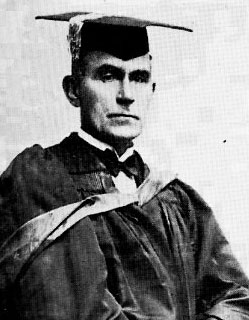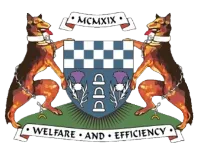Structure of the Organisation

The Scottish Police Federation represents over 16,000 members. It covers constables, sergeants, inspectors, chief inspectors and special constables.
The organisation consists of locally elected representatives who form Area Committees in the North, East and West, aligning to the structure of Police Scotland. From those Representatives are elected full time Officials who carry out the organisations work locally. Members of these local committees then form the Joint Central Committee.
The Joint Central Committee is the executive body of the organisation and has a full-time General Secretary, Chair, Deputy General Secretary and Vice Chair.
There are also a number of full time officials based in Area offices across the country. All are serving police officers. It also employs staff at its Headquarters at 5 Woodside Place, Charing Cross, Glasgow and in its Area Offices. There are then Federation representatives elected in force for the three ranks, constable, sergeants and inspectors (including chief inspectors).
Find out more about the people of the SPF by selecting one of the options below.
Welfare and Efficiency
The statutory remit of the SPF is the welfare and efficiency of police officers. SPF negotiates pay, conditions and pensions for the police. It provides a comprehensive legal advice and assistance service. It arranges life and other insurances, assists with and supports several Police related charities which provide help for Police Officers and their families.
SPF works with government, Police Scotland and other related agencies to ensure that the best interests of police officers are properly represented, both in relation to how they work and how they are compensated. It represents officers in many different areas such as health and safety, uniform and protective equipment, conduct issues, and of course giving a police officer’s view to government on the police, policing and the wider criminal justice system.
No police officer can be sure of what is going to happen to them in their police service and the Federation is there to assist them – it’s as simple and as complicated as that. A ‘cradle to the grave service’? Not quite, but not far off.
2019 year represents the 100th anniversary of the Scottish Police Federation. To mark the occasion, a short video has been produced of landmark dates and events in the last century.
Our History

Norman Morrison was born on 21st October 1869 in Shawbost on the Isle of Lewis. He was one of a family of nine and had little or no formal education. He joined the City of Glasgow Police aged 19, transferred to Argyll County Police and was stationed in Oban. He was ‘sacked’, reinstated, successfully challenged a decision to retire him on ill-health and eventually retired as a sergeant with over 30 years service in 1922. He later became a Doctor of Science and Fellow of the Zoological Society of Scotland. What has this to do with the Scottish Police Federation? Norman Morrison, more than any other police officer in Scotland, was responsible for the creation of the SPF.
Prior to 1919, pay and conditions for police officers were poor. In 1911, with others, Norman Morrison began to campaign for improvements such as a weekly rest day! Police pay was equivalent to that for agricultural and unskilled labourers. In 1913, a National Union of Police and Prison Officers was formed. The authorities were unhappy to say the least that police officers were members of the Union. On 11th February 1919, Norman Morrison was summoned to see the chief constable and told,
‘You have five minutes to consider your withdrawal from the Union. Either withdraw now or tender your resignation from the Service’
Norman Morrison ‘chose’ resignation. The chief constable instructed him to write out his compulsory resignation there and then. Two constables, Archibald Campbell and James Ross were similarly treated. The people of Oban were outraged at the actions of the chief constable and held a meeting in support of Norman Morrison and his colleagues. The community wrote to the Prime Minister in protest at the dismissals and a week later the men were reinstated. Throughout Britain similar unrest over police pay and conditions was apparent. In July 1919, a short and frankly poorly supported police strike took place. Government eventually realised it had to act to resolve the situation.
The Police Act, 1919 outlawed police membership of unions and created the Scottish Police Federation. It stated:
‘For the purposes of enabling the members of the Police Forces to consider and bring to the notice of the police authorities and the Secretary of State all matters affecting their welfare and efficiency … there shall be established in accordance with the Schedule to this Act an organisation to be called the Police Federation….’
Norman Morrison was transferred away from Oban following his reinstatement, undoubtedly as a punishment for challenging the authorities. The same authorities tried unsuccessfully to retire him on ill-health when he acknowledged he suffered ‘insomnia’. Speaking about the day he ‘resigned’, he recalled that he faced an order to vacate his police house within a week and there were no available houses in Oban or in other nearby towns for him, his wife and four children – “Yet I had my convictions and principles at stake, and the man who barters his principles for material gain is, in my opinion, on the same level as the beasts of the field.
Want to be a Federation Representative?.. click here…
